Blastness took us by the hand, and together we began a journey of growth and shared goals.
Blastness
The world's #1 Hotel Reservations Software.
Boost your sales opportunities with the tool awarded by hoteliers on HotelTechReport
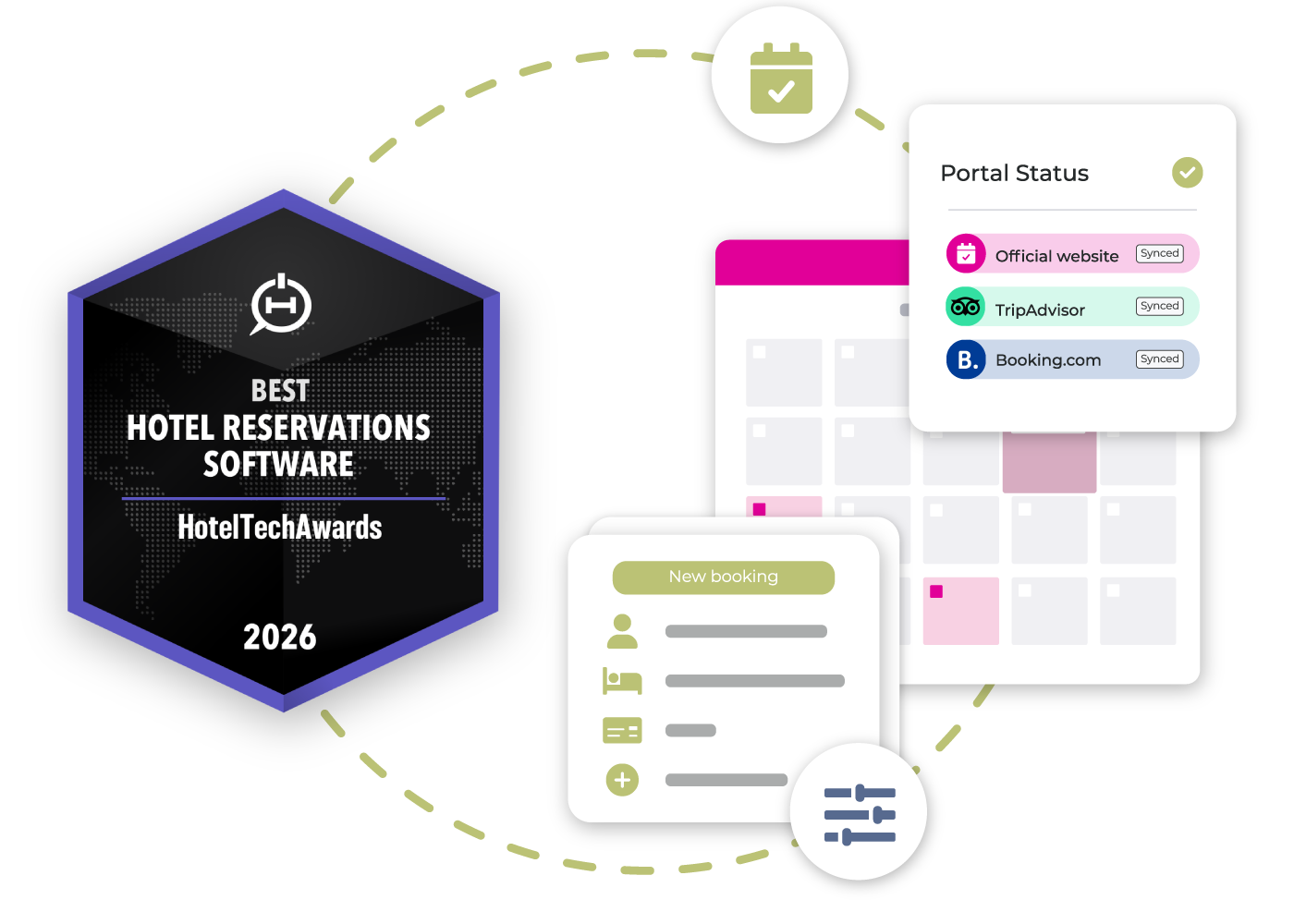
AIBE: your Booking Engine, powered by AI.
Drive even more conversions with the new AI-powered booking engine, designed to boost engagement and reduce abandonment
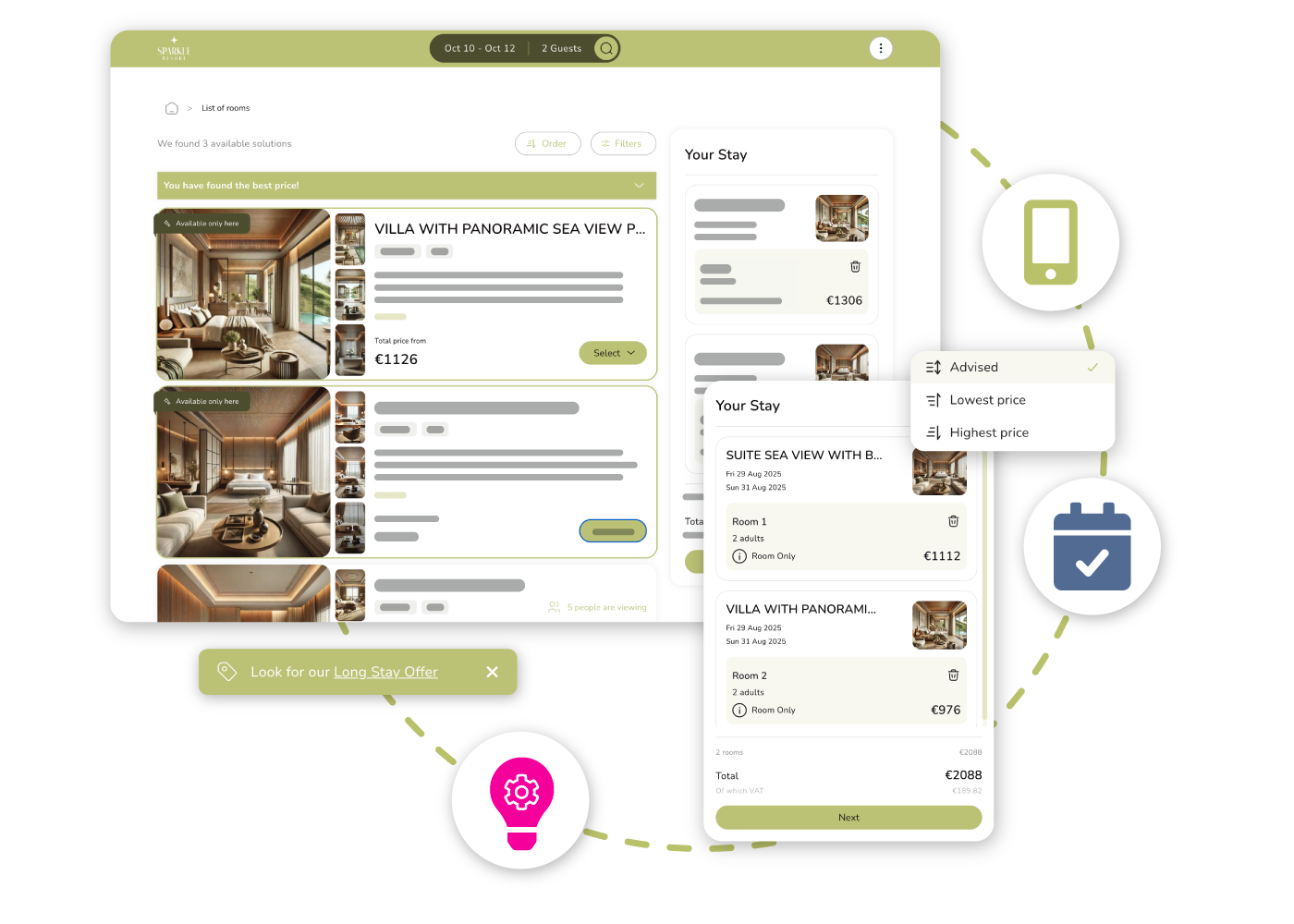
Our RMS that does the double for you
THE ONLY SYSTEM THAT ALLOWS YOU TO MANAGE RATES ON DIRECT AND INDIRECT CHANNELS IN A DIFFERENTIATED WAY
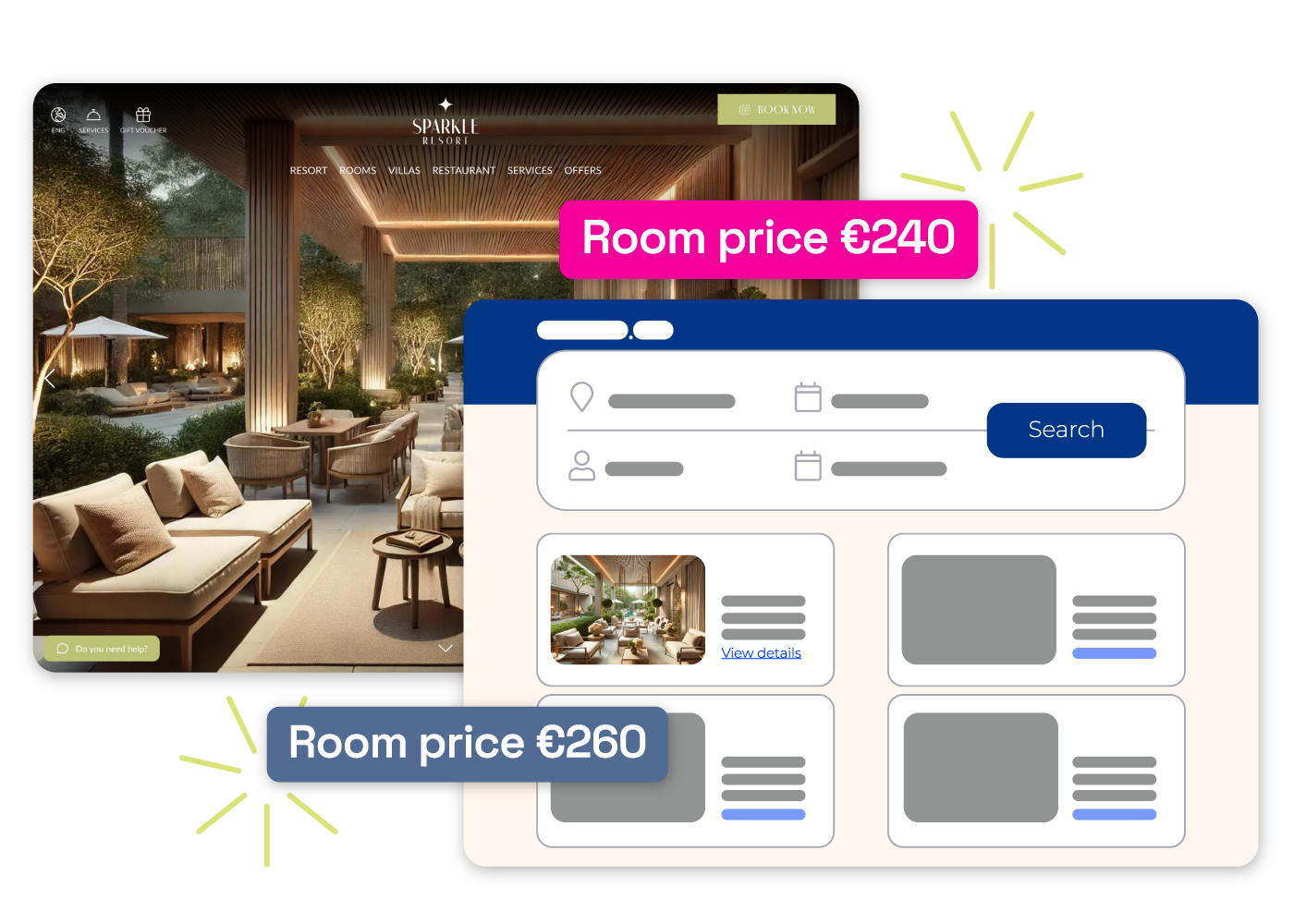
Lower commissions, higher conversions
REDUCE YOUR RELIANCE ON OTAs WITH DATA-DRIVEN PPC CAMPAIGNS AND A WEBSITE DESIGNED TO SELL
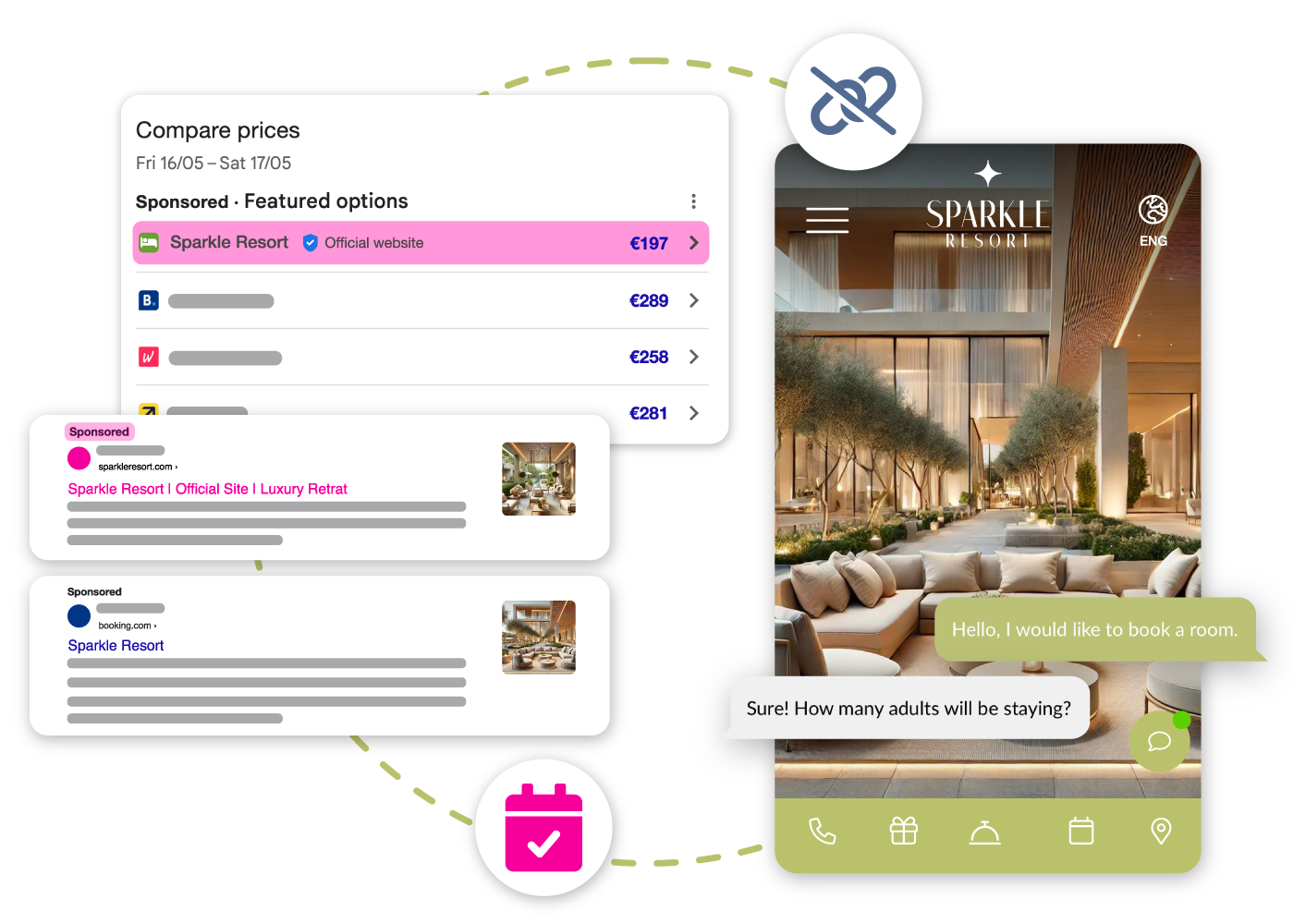
Profit starts with saving.
WITH OUR WIN-WIN PARTNERSHIP PLAN, YOUR RETURN ON INVESTMENT IS GUARANTEED
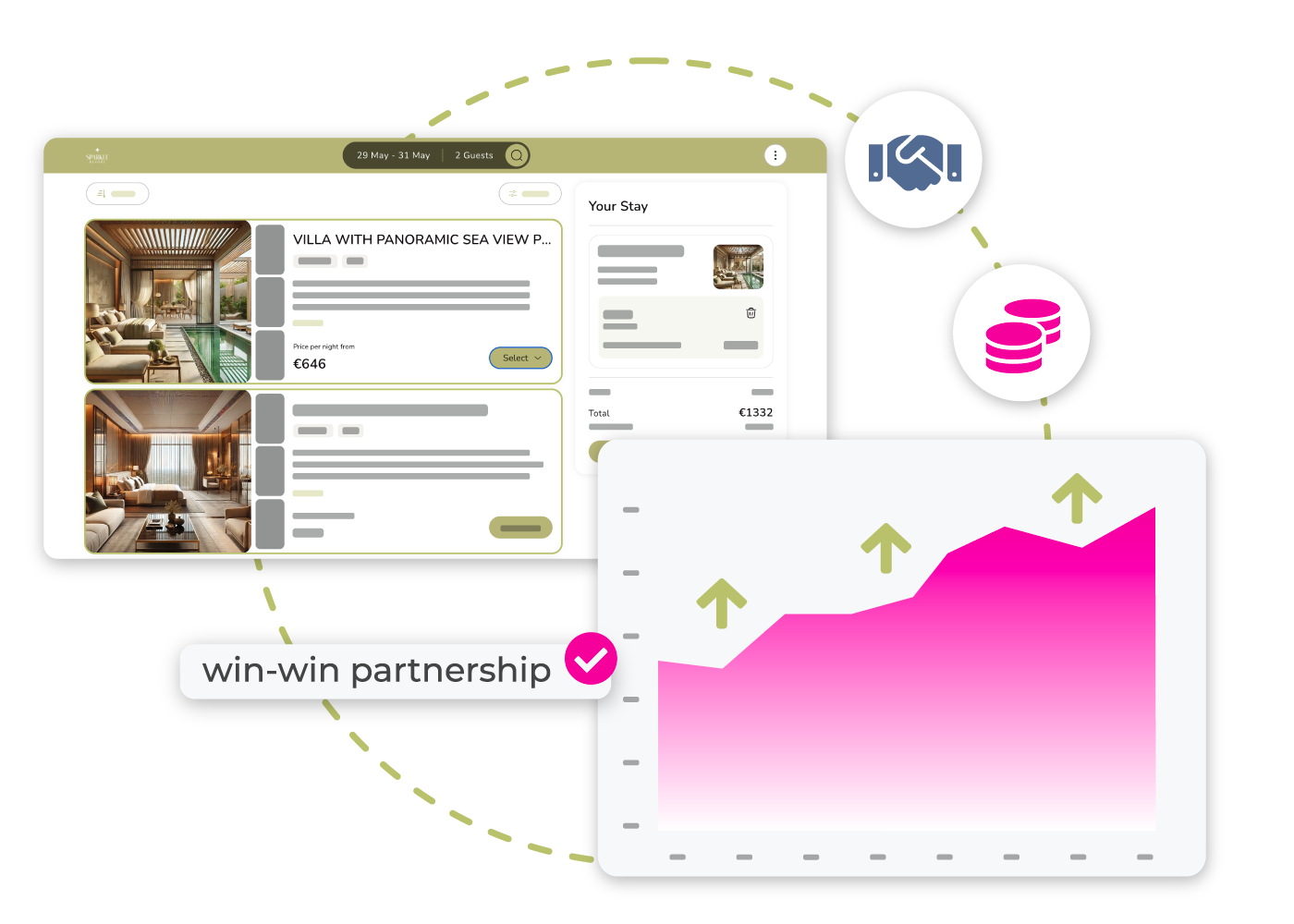
Title Box Numbers
+
0
YEARS OF EXPERIENCE IN THE HOTEL INDUSTRY
+
0
CLIENTS AROUND THE WORLD
+
0
PROFESSIONALS
At Blastness, every piece of technology is designed with a clear goal in mind: to sell more and better from your official website. With integrated solutions for every stage of the customer journey and ongoing support from specialised professionals, you can transform data into practical actions to improve your day-to-day performance and make success your new standard.
We grow your sales
We optimise revenue and increase your margins
We turn your investments into profit
Three keys to your success
One Stop Shop
One Stop Shop
Choose a unique ally for your growth
Make the most of digital market opportunities with customizable solutions designed for every need.

Blastness Suite
Blastness Suite
Analyse and manage your strategies from a single platform
Access integrated reports and perform fast and accurate operations through a centralised system.

Consultancy
Consultancy
Achieve your revenue goals with expert guidance
With Blastness, you are never alone: you are supported by a team that shares your vision and transforms objectives into results.

Section What people say about us
"
More than just a technology provider, Blastness is a partner that offers comprehensive support in the complex management of online distribution.
Giacomo Grossi - Villa Cortine Palace General Manager

Blastness Suite supports us every day in all our revenue and distribution operations.
Fabrizio Tagliasacchi - Hotel The Square Hotel Manager

With Blastness, you have everything you need to ride the market wave.
Marta Fontani - General Manager Villa Sabolini

Daily Report, Market Gravity, and Rate Shopper are the three pillars of our revenue strategy. The Blastness Suite provides us with a crucial data baseline for shaping our strategies and tracking results.
Claudio Catani - FH55 Vice President Operations

We chose Blastness as a solid and innovative partner, capable of supporting us in our digital evolution and competitive market positioning.
Giuliana Genco - Multierice Group Coordinator & Marketing Manager

Emanuele Bonotto - Bonotto Hospitality Owner & General Manager

Blastness supports the growth of your property, enhancing its positioning within the competitive landscape.
Piero Ivaldi - Duomo Hotel Apartment General Manager

The proposed technology is cutting-edge and constantly evolving, with an increasing focus on artificial intelligence and its practical application. The suite of tools is comprehensive, easy to use, and enables integrated management thanks to the all-in-one approach.
Alessandra Brucoli - La Fiermontina Family Collection Sales & Marketing Manager

"
You decide how you want to collaborate
Pay per Result
Choose the win-win partnership for a customised business plan that guarantees a return on investment.

Pay per Product
With this supply model, you pay for the products you need with monthly instalments over the medium term, with no initial costs.

Pay per Reservation
Activate Pay Per Click campaigns on search and metasearch engines, paying only for tracked bookings.
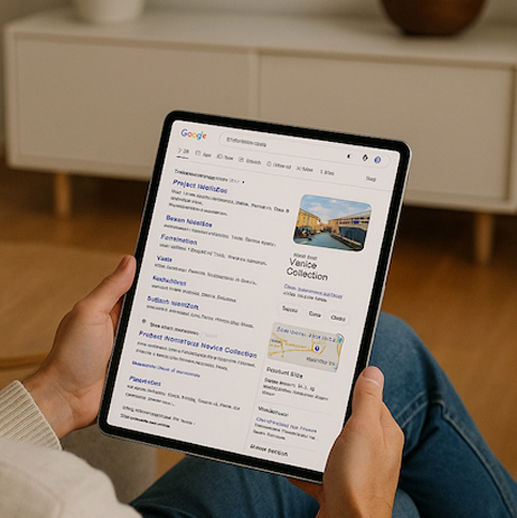
Let the numbers speak for our results

74 Rooms
Siena
Borgo San Luigi
+70%
RevPAR Growth (2019 vs 2024)

92 Rooms
Syracuse
Minareto
63%
2024 Online Market Share

37 Rooms
Rome
Terrace Pantheon Relais
+207%
RevPAR Growth (2017 vs 2023)

179 Rooms
Rome
Parco dei Principi Grand Hotel & Spa
+70%
PPC Share (2018 vs 2023)

127 Rooms
Sanremo
Royal Hotel Sanremo
+230%
Official website growth (2018 vs 2024)

40 Rooms
Siena, Tuscany
Villa Sabolini Dimora Storica
+1838%
Official website growth (2017 vs 2023)
Trusted by those who aim higher
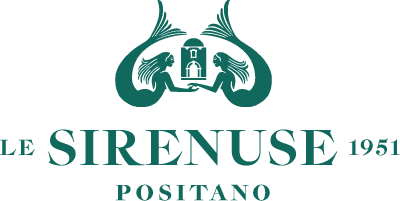










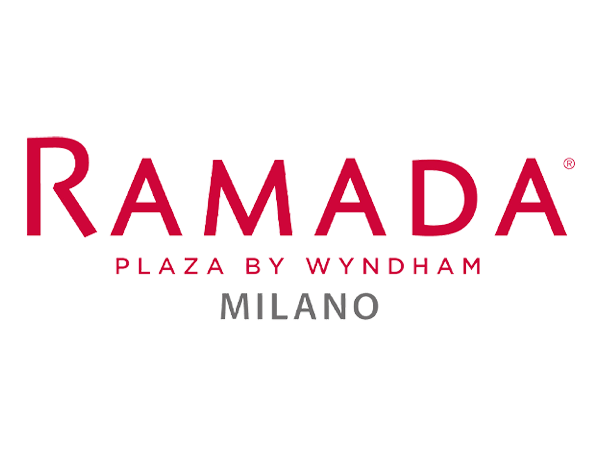




We have a shared passion
Focus
Dual and AI-powered: the RMS you need to optimise direct sales
Managing hotel rates has never been easy. The market is dynamic, direct sales exist alongside OTAs, demand changes quickly. Discover how our RMS can support you.
Focus
Copywriting for hotels: 5 mistakes that make you lose bookings
Summer has always been the golden season for hotels, but in 2025, it is also proving to be the perfect season to grow on Instagram. Read the article to find out how.

Focus
5 Trends to Grow Your Hotel on Instagram This Summer
Summer has always been the golden season for hotels, but in 2025, it is also proving to be the perfect season to grow on Instagram. Read the article to find out how.
Let's meet
Let's grow together
Start growing with us


